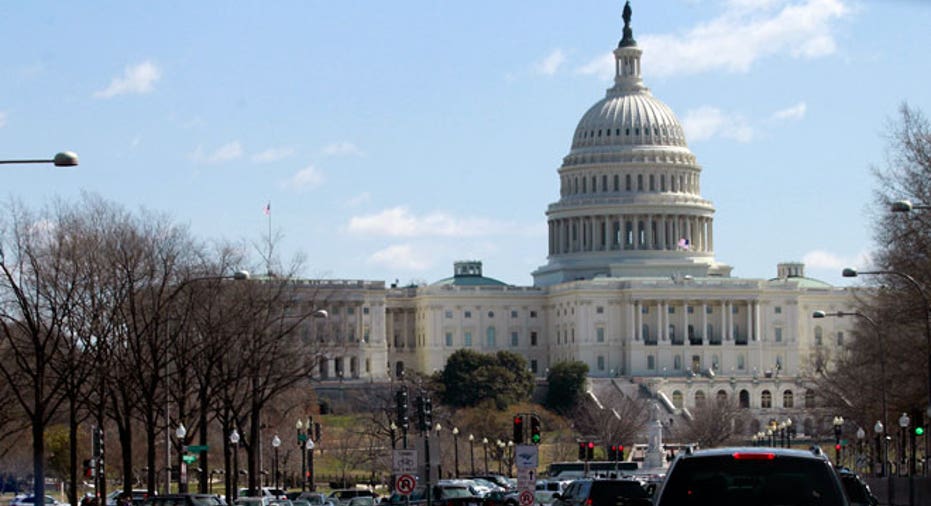Who Exactly Is Representing the People?

At some point it becomes fair for the vast majority of Americans to ask themselves who exactly in Washington, D.C., is looking out for their best interests.
Americans go to the polls every two years, four years and six years to elect respectively their Congressmen, president and senators, who are then empowered to go to Washington and represent the interests of the voters who sent them there, and also the residents of their districts and the nation as a whole.
But the ongoing budget standoff -- and each of the recent similar confrontations over the past two years -- that threatens to shut down the government at midnight Monday calls all of this into question.
In whose best interest is it if 800,000 to 1 million government workers are told to stay home on Tuesday?
The loss of pay – even if it’s temporary – will hit already strapped consumers, placing another obstacle in the path of economic recovery. There’s also the domino effect on countless businesses that depend on government agencies and services for a share of their livelihoods.
If national parks are closed, for instance, what does that mean to the hotels, restaurants and gift shops that depend on steady tourist traffic to cover their expenses?
In whose best interest is it if stock markets continue to fall as they have for the past week based on the uncertainty surrounding fiscal policy in Washington?
Granted, stock markets have been on a tear in recent years despite the endless turmoil in Washington. Nevertheless, the Dow Jones Industrial average was down more than 120 points on Monday, and is down nearly 1.5% over the past week. The S&P 500 has also fallen more than 1% in recent days as skittish investors fret over a possible shutdown. And the long-term upward trend could change sharply in a matter of weeks if the budget standoff carries over to the vote on raising the U.S. debt limit, which it almost certainly will.
The current battle “does not bode well for the next fight in just a few weeks, where the far more dangerous hostage of the debt ceiling will be placed at the center of the circular Washington firing squad,” said David Kelly, chief global strategist at JPMorgan Funds wrote in a note to clients Monday. Markets plunged in the summer of 2011 when a similar standoff over raising the debt ceiling prompted Standard & Poor’s to lower the U.S. credit rating.
The Dysfunction Is Bad for Business
In whose best interest is it if U.S. businesses can’t plan ahead because of the prevailing atmosphere of dysfunction in Congress?
Business leaders have complained for years that it’s difficult to plan for the future when so many questions remain over health care costs, taxes and regulation. This has cast a long shadow over companies' ability to invest and expand, moves that could have added untold numbers of jobs to a struggling economy that desperately needs them.
Little wonder then that the stubbornly high unemployment rate – 7.3% in August – only seems to fall when tens of thousands more Americans leave the workforce altogether, frustrated with their efforts to find a job.
Parsing the ostensible motivations of the key players in the current battle is insightful, but not particularly helpful to the average American taxpayer who expects a functioning government.
Conservative Republicans in both the Senate and the House of Representatives are using the budget debate to focus attention on their primary purpose – cutting government spending. Specifically by defunding the Affordable Care Act, president Obama’s health care reform legislation.
Many of these Republican Senators and House members were recently elected from staunchly conservative districts and were sent to Washington on little more than that single mandate. Consequently, they would argue, they are representing their constituents and upholding their principles, notwithstanding the potential negative fallout from a government shutdown.
Of course, these politicians are also laying the ground for their re-elections.
Democrats in the Senate and the House say a compromise is necessary for the good of the country. And most political analysts – and even some leading Republicans -- say Democrats stand to benefit in the event of a shutdown because Republicans will be blamed.
At the same time, however, these very Democrats who support a compromise have vowed to reject any budget that excludes funding for ObamaCare, a key element of which – enrollment in the law’s health care exchanges – is set to take effect on Tuesday. The problem for these Democrats is that a majority of Americans oppose ObamaCare, and nearly a quarter of those who oppose the law wish Congress would take whatever measures necessary to ensure it fails, according to a recent survey by the Pew Research Center.
So Republicans are willing to alienate a majority of Americans by threatening to shut down the government, and Democrats are willing to alienate a majority of Americans by steadfastly standing behind an unpopular law.
And taxpayers are once again held hostage to this spectacle, left to wonder who exactly represents their best interests.



















